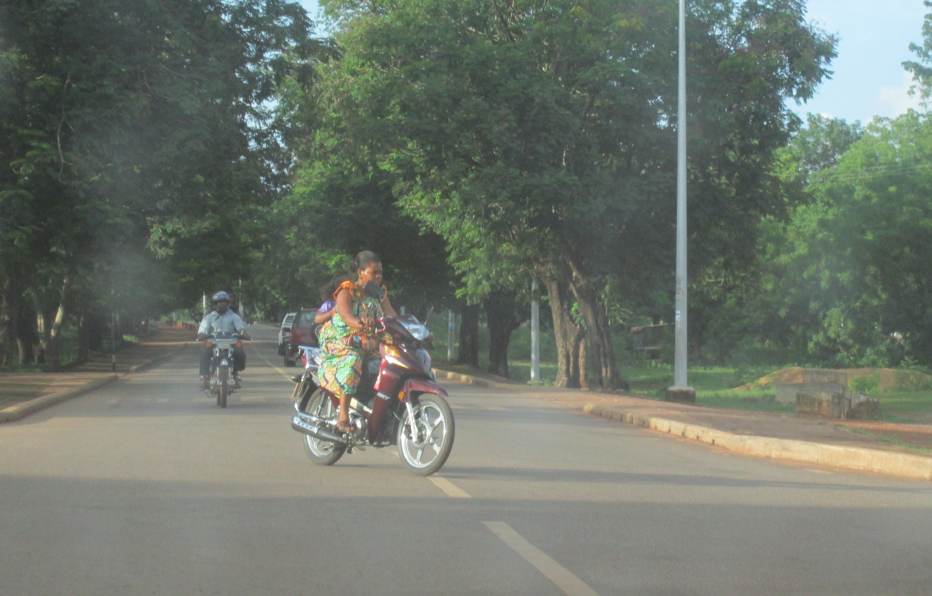The folk at my internship, Media Foundation for West Africa, were generous enough to fly me to Tamale, Ghana, for an all expenses paid for three-day conference during my second to last week here. The conference focuses on using radio to promote effective and participatory local governance in Northern Ghana. (Ghana divides into ten regions and Tamale is the capital of the Northern.) We flew to Tamale this morning as a quad-pod: my boss, a retired BBC broadcaster, MFWA’s program coordinator, and Obruni me.
There is a central Mosque in Tamale and I was fortunate enough to drive by during prayer. Hundreds of Muslims were huddled together outside the Mosque to pray. It’s Ramadan and a Sunday- so the town was apparently even sleepier than normal. Seldom field workers and vendors lined the streets and heckling wasn’t part of the city’s nature. It was nice to get a break from the persistence. As we gallivanted through town, I saw several women making fufu and approached one to ask if I could stand close and watch. She said of course. I explained to her that I had only seen this happening on YouTube and I was excited to see it in real life. I stared enthralled at the pounding and quick hands of the lady placing the cassava in the smasher. She laughed at me…
Tro-tro’s, people, and animals all still share the road, but unlike Accra where tros fill the street, motorbikes are the main form of transportation. It’s a pretty cool transit system; everything is happy-go-lucky and even when bikers almost hit our car they were very polite and quick to say sorry. While we were at a craft market, a man offered to go pick up freshly made shea butter from a lady down the street on his motorbike for me. Granted, he probably charged me too much, but I was delighted he made the trip at my request. Men, women, and children dress modestly; most of their skin is covered with colorful patterned fabrics. Goats use the buddy system to roam the streets. At one point today four pregnant goats surrounded me but I was saddened when I saw the mammas rummaging through garbage and the gutters for food, but I suppose they’ve adapted to that life since day one of birth.
While we pulled over to fix some car trouble, Sulemana, my boss, asked the three of us if we’ve ever had dates (the fruit). I was confused a little because the dates he was referring to were tan and looked like nuts… I told him they looked different in the States so he suggested I try them here. I bought a small bag for 2 cedis (most of the women’s head-bowls were full of these fruits) and how DELICIOUS they were! My co-worker hadn’t ever tried them either, so we took the first couple together. She wasn’t a fan but I definitely was and needless to say, I finished most of the bag right there. The reason for the surplus of dates is somewhat historical, relating back to what Mohammed ate when he first fasted. Seeing as how it’s Ramadan, I felt like I got a little piece of their annual tradition- literally. And I was delighted to share a “first” with an Obibini. It made me feel a little less like a tourist.

What a grand experience! Enjoy!
A couple classmates brought back dried dates from Tunisia last term and boy were they delicious! I would love to have tasted them in the setting and with the people you were able to do so with. Cheers!